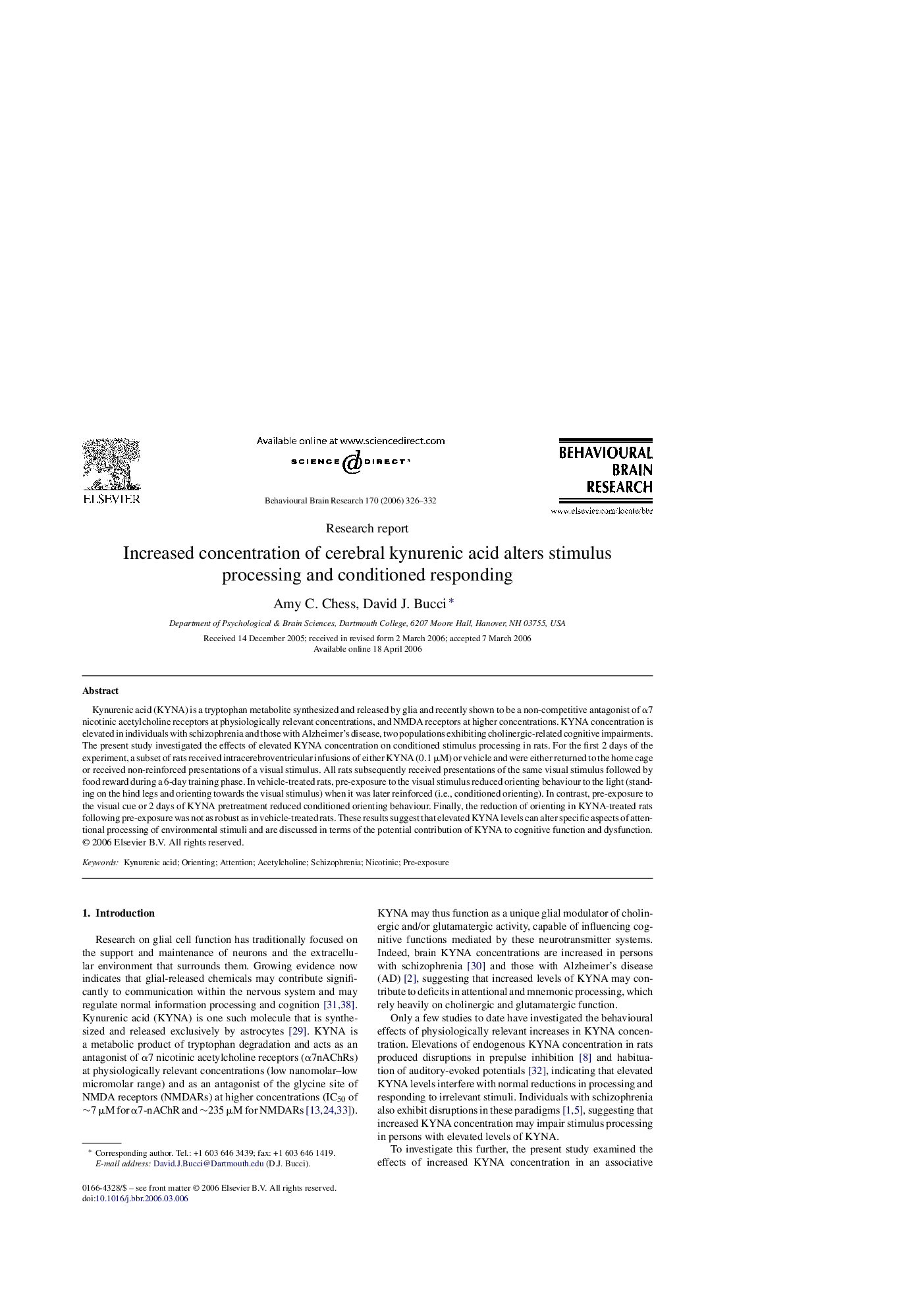| کد مقاله | کد نشریه | سال انتشار | مقاله انگلیسی | نسخه تمام متن |
|---|---|---|---|---|
| 4315827 | 1613003 | 2006 | 7 صفحه PDF | دانلود رایگان |

Kynurenic acid (KYNA) is a tryptophan metabolite synthesized and released by glia and recently shown to be a non-competitive antagonist of α7 nicotinic acetylcholine receptors at physiologically relevant concentrations, and NMDA receptors at higher concentrations. KYNA concentration is elevated in individuals with schizophrenia and those with Alzheimer's disease, two populations exhibiting cholinergic-related cognitive impairments. The present study investigated the effects of elevated KYNA concentration on conditioned stimulus processing in rats. For the first 2 days of the experiment, a subset of rats received intracerebroventricular infusions of either KYNA (0.1 μM) or vehicle and were either returned to the home cage or received non-reinforced presentations of a visual stimulus. All rats subsequently received presentations of the same visual stimulus followed by food reward during a 6-day training phase. In vehicle-treated rats, pre-exposure to the visual stimulus reduced orienting behaviour to the light (standing on the hind legs and orienting towards the visual stimulus) when it was later reinforced (i.e., conditioned orienting). In contrast, pre-exposure to the visual cue or 2 days of KYNA pretreatment reduced conditioned orienting behaviour. Finally, the reduction of orienting in KYNA-treated rats following pre-exposure was not as robust as in vehicle-treated rats. These results suggest that elevated KYNA levels can alter specific aspects of attentional processing of environmental stimuli and are discussed in terms of the potential contribution of KYNA to cognitive function and dysfunction.
Journal: Behavioural Brain Research - Volume 170, Issue 2, 30 June 2006, Pages 326–332